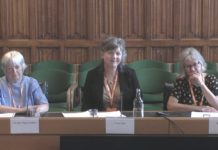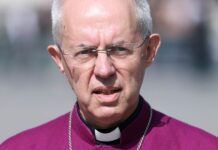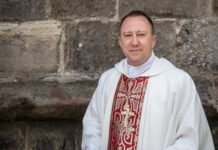Christians can “change the world” just like the early Church, the Presiding Bishop of the US Episcopal Church said today as the Lambeth Conference issued a call for a renewed focus on spreading the Christian message.
Bishop Michael Curry said “something profound” happens in a person’s life when their “centre of gravity” is no longer themselves but Jesus.
He said becoming a member of a church congregation was “just the beginning” – and that Christians should be people who “work and act and live and love like Jesus”.
“Jesus began a movement of people whose lives were centred on him,” he said. “He was the centre of their lives and His way of love and His way of life became their way of life. They changed the world in the first century. If it can happen for them in the first century, it can happen for us in the 21st century and that is the power of discipleship.”
He added that becoming a member of a church is “just the beginning.”
“You have got to be in community – but that is not enough, we don’t want to just make more Church-ians, we need to make Christ-ians, people who work and act and live and love like Jesus.”
His remarks were made ahead of a plenary session on discipleship at the Lambeth Conference chaired by Bishop Michael and Rt Revd Ng Moon Hing, Co-Chair of the Anglican Communion Commission on Evangelism and Discipleship.
Dr Eleanor Sanderson, the Assistant Bishop of Wellington, New Zealand, told the conference about the 40 missional communities set up in her diocese.
“At the beginning of the Calls the whole conference stood with the affirmation that we would make disciple making a core priority,” she said. “Our diocese has really been walking on that path for a long time now – at least 10 years of really concerted determination that that is what we will do.”
The Archbishop of the West Indies Howard Gregory gave a presentation to the conference on a programme of discipleship in his diocese.
He told the conference of the ‘significant increase’ in lay engagement in ministry and mission as a result of the work with 200 lay people registering for training for lay leadership programmes.



